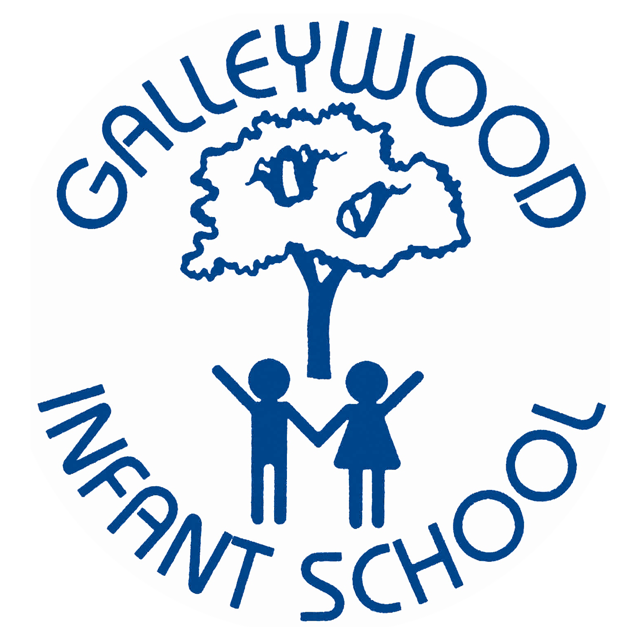Intent:
Our intention is for children to build a foundation of knowledge, understanding and curiosity that will enable them to develop a sense of religion and world views around them and begin to understand the complex and diverse communities in which we live. Religious education provokes challenging questions about the meaning and purpose of life, different beliefs about God, an understanding of ourselves, right and wrong, and about what it means to be human.
Teaching religious education through the disciplines of theology, philosophy and the human and social sciences supports children to build their knowledge and understanding by exploring a range of religious and non-religious world views. Through asking questions, exploring and discussing beliefs the children develop religious literacy and become more confident to reflect on their own ideas, feelings and experiences.
Implementation:
At Galleywood Infant School the Essex Agreed Syllabus is followed for planning and teaching Religious Education. The new Essex syllabus is now in place in all year groups.
Teaching in RE is organised into units based on big questions rooted in one of the three key disciplines or disciplinary fields:
Theology:
We have called this thinking through believing. It is about asking questions that believers would ask. It requires pupils to think like theologians, or to look at concepts through a theological lens. Pupils will explore questions and answers that arise from inside religions and worldviews
Philosophy:
We have called this thinking through thinking. It is about asking questions that thinkers would ask. It requires pupils to think like philosophers, or to look at concepts through a philosophical lens. Pupils will explore questions and answers raised through considering the nature of knowledge, existence and morality.
Human/ Social sciences:
We have called this thinking through living. It is about asking questions that people who study lived reality or phenomena would ask. It requires pupils to think like human and social scientists, or to look at concepts through a human/social science lens. Pupils will explore questions and answers raised in relation to the impact of religions and worldviews on people and their lives.
RE in EYFS
In EYFS children listen to and talk about religious stories, learn about important festivals and begin to ask questions about aspects that may interest and puzzle them. The children’s own experiences are the starting point for learning; they reflect on their feelings and experiences and share these with others. They explore religion and world views in terms of important people, calendar events, special places and significant objects, as well as visiting a place of worship. They are introduced to specialist vocabulary and use their senses in exploring a range of beliefs and practices.
RE in Key Stage 1
At our school we take an in-depth look into Christianity, Judaism, Hinduism and Islam.
Lessons are taught weekly and each lesson typically lasts 1 hour. Lessons demonstrate a balance of learning about the religion and learning from it.
Key vocabulary is explicitly taught as part of the lessons and is revisited so that children come to understand and apply new vocabulary in their explanations and questions.
The RE scheme has been planned to give children:
Opportunities to revisit prior learning from EYFS or Year 1
Opportunities to see and handle relevant religious artefacts
The chance to visit at least one place of worship
The experience of meeting and listening to believers from different faiths
Children’s work may take the form of writing, drawing, photographs, art, drama or discussion and debate.
Impact:
At the end of each unit, pupils are assessed against the knowledge and vocabulary as set out in the planning overview. This information is recorded on the RE assessment grid for each class and used to inform future teaching.
Children will know more
- Vocabulary is explicitly taught and revisited with opportunities for speaking and listening in each session
- Children are given opportunities to describe similarities and differences between religions.
- Children are given opportunities to talk about the faith views of their families.
Children will be able to do more
- Learning is structured to give opportunities to explore different religions in each lesson
- There are a variety of activities planned within the structure of the lessons to give pupils a chance to apply their knowledge and vocabulary.
- Within the scheme there are opportunities to visit a place of worship and talk to people who hold different faith views.
Children will remember more
- Children’s work is recorded and shared in a range of ways
- Practical activities, age-appropriate artefacts and discussions are planned to help children to remember key facts.
- There is a recap of prior knowledge at the beginning of new units and as part of the learning journey within each unit to help embed religious knowledge.
Withdrawal from Religious Education
A parent of a pupil may request:
- that their child be wholly or partly excused from receiving RE given in accordance with the Agreed Syllabus.
- that a pupil who is wholly or partly excused from receiving RE provided by the school may receive RE of the kind desired by the parent elsewhere, provided that it will not interfere with the attendance of the pupil on any day except at the beginning or end of a school session.
- that a pupil who is wholly or partly excused from receiving RE provided by the school may receive RE of the kind desired by the parent on the school premises provided that it does not entail any expenditure by the responsible authority


